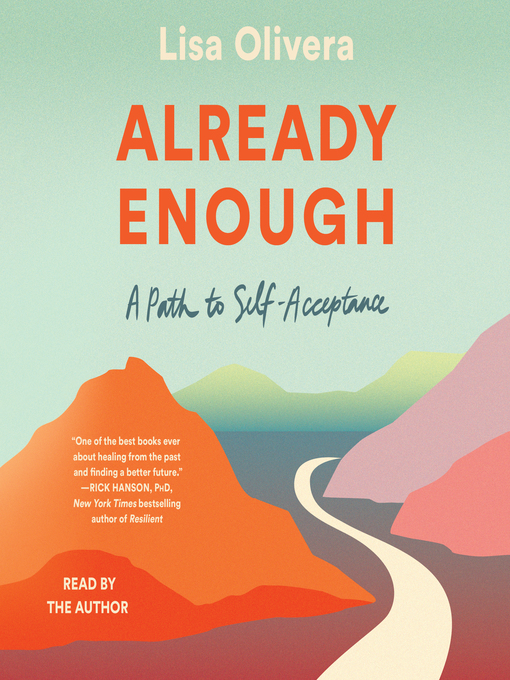1. Understanding Our Stories UNDERSTANDING OUR STORIES The first place I spoke parts of my story aloud outside of a therapy office was as an undergrad at UC Santa Cruz. I took a moral psychology seminar, and our final project was to write a thirty-minute presentation about some aspect of our lives that we continued to carry within us. I chose to talk about my abandonment, my relentless search for my identity, and my history with depression (you know, the light, casual stuff). I stood in front of my classmates--and on the edge of myself. "I realize my abandonment had nothing to do with who I am as a person or my worth as a newborn," I said. "That's how it affected me, though, and those are the beliefs that I formed about myself, whether or not they were valid. I have carried these beliefs with me throughout my life." I explained that these beliefs carved paths for an unhealthy relationship with myself and for challenging relationships with others. "It's not all bad," I said, "and I have made remarkable progress in my life between when I was fourteen and where I am today, but I still have a long way to go." I said things I had never spoken about with more than a few other people. I shared parts of me that I thought needed to be hidden. Parts I wanted to keep buried. Parts I was still ashamed of. Parts I once wanted no one else to see in me. At the end of the presentation, I read out loud a letter I had written to my birth mother: "My soul longs to meet yours, not only to ask you questions but also to embrace you and tell you that it's okay. It's okay. I know that while I have struggled, you have also struggled. I know that when I think of you every year on my birthday, you may be out there, thinking of me." I thanked my birth mother. I thanked her for being brave enough to carry me just long enough to let me go. I thanked her for providing me with the opportunity to love, to feel pain, to experience joy, to embrace friends and family, and to discover who I am and what I want from this life. "Without you, I would not be," I said. I could barely get through the rest of the letter. Tears were at the back of my throat. A swirl of dizziness overcame me. When I finished, there were a few seconds of silence. I stared at the floor, heart beating fast. When I looked up, most of the people in the room were in tears. My professor put his hand on his heart. They had seen all of me, and they met me with open arms. I stood, wobbly kneed, in awe of what transpired when I chose to share the hard parts of my story instead of the easy parts--when I chose to finally tell the truth. I think about that moment often. Writing that letter changed me, and reading it out loud changed me more. It was a potent reminder of what making room for our stories to come out of hiding does: it allows us to come out of hiding, too. Understanding my story hasn't fixed or changed what has happened in my life, but it has allowed me to let myself be witnessed as my full self--and to heal. We all deserve this. Reframing our stories starts with understanding them. It's challenging to have compassion for stories you don't understand, let alone to share them with others, which is why cultivating a deep understanding of our stories first is so transformative. It's why we start here. Human instinct is to tell stories. In 1944, psychologists Fritz Heider and Marianne Simmel conducted a study in which subjects watched an animated film of shapes moving around a screen, and found that most of the subjects, when asked to explain what had happened, constructed a story about it. This is our way of making meaning of what we experience. It gives us a perceived feeling of control. Creating internal stories can be an unconscious process. We may not even realize what we are telling ourselves until we slow down and start paying attention. That is exactly what this book will support you in doing: tuning in to start understanding your story, gently and tenderly, so you can rewrite the parts that are holding you back and move forward, more whole. Understanding, reframing, and then integrating your story is part of how this healing happens. Getting honest leads to getting brave, and getting brave leads to getting free. A gentle reminder: You might already be feeling a bit of heaviness about diving into some of your own stories. This is normal. I invite you to go at your own pace, to give yourself permission to pause and to breathe. This is a process and not on a time line. Keep checking in with yourself as you read, and thank yourself for doing this work. How Our Stories Come to Be Throughout the book, I will use the word "story" often. You might be wondering, what exactly is a story? I think of our stories in two ways: what we've experienced and what we tell ourselves about what we've experienced. Say you're trying a new recipe for a chocolate cake and you leave it in the oven too long--and it burns. The story you've experienced is: I burned the chocolate cake. The story you tell yourself about what you've experienced is: I can't even make a chocolate cake. Excerpted from Already Enough: A Path to Self-Acceptance by Lisa Olivera All rights reserved by the original copyright owners. Excerpts are provided for display purposes only and may not be reproduced, reprinted or distributed without the written permission of the publisher.

